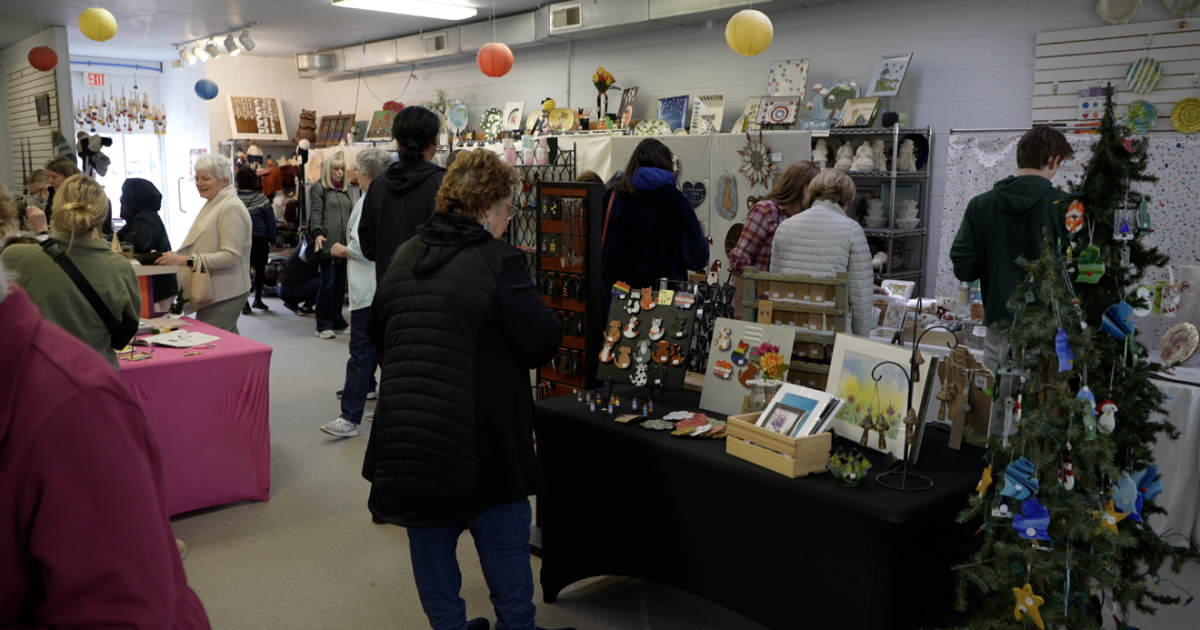Jobs
Gen Z women’s interest in trade jobs marks “major” generational shift

Gen Z women are driving a “major shift” from previous generations by taking an interest in trade jobs, a new report revealed this week.
While historically the trades have been dominated by men, social media might be sparking a new interest in these roles among women, according to home tech company Thumbtack’s Second Annual Future of the Skilled Trades Report.
Gen Z women ranked social media as their number one career path influence and are now around as interested in a job in the skilled trades as their male peers, at 52 percent and 57 percent respectively.
Chip Somodevilla/Getty Images
“There has been a significant push toward gender equality, with many traditionally male-dominated professions now attracting women,” Kevin Thompson, a finance expert and CEO and founder at 9i Capital Group, told Newsweek.
“In addition to this cultural shift, the trades offer on-the-job training and lucrative career paths, which appeal to those seeking to avoid the high costs of a college education. More young women are opting for on-the-job training, recognizing the financial opportunities and job security that come with a trade.”
People already working in the trades have noted the difference as well. Roughly 60 percent said their careers are becoming more “Instagrammable” and 77 percent of Gen Z said they noticed more attention on the skilled trades on social media, with the number of posts increasing 52 percent year over year on platforms like TikTok and Instagram.
“Social media has made the trade industry more accessible by offering a real-time, visual window into the work involved,” Thompson said. “Social media platforms allow users to see the daily realities of these professions, breaking down barriers and making it easier for young women to imagine themselves thriving in these roles.”
The prevalence on sites might be driving increased respect for the trades that were sometimes looked down upon in the past. Roughly 84 percent of Gen Zers and their parents expressed high respect for the skilled trades in the survey, and 67 percent of Gen Z said social media increased their interest in these fields.
“For young women to see others like them working with their hands, earning a great living, and literally getting the job done, it’s inspiring and eye-opening,” Mark Hedstrom, the executive director at Skilled Careers Coalition, told Newsweek.
Altogether, 55 percent of Gen Z said they were considering a skilled trade career, and that was an uptick of 12 percent from last year.
“As more women have success in the trades, this visibility helps breakdown stereotypes and encourages more women to consider careers such as plumbing as viable paths and business opportunities,” a Gen Z Thumbtack Pro adviser said in the report.
Part of the uptick in interest may be owing to Gen Z’s entrance into the workforce during the pandemic. While jobs in tech and finance might seem more volatile, skilled trades could present a more stable career, as 95 percent of trades professionals said they felt optimistic about their professional futures. Roughly 89 percent of the trades workers also expressed high job satisfaction.
“Over the past few decades, the jobs trade schools produced sadly got stuck with negative stigmas as being more labor-intensive and poorly paid,” Alex Beene, a financial literacy instructor for the University of Tennessee at Martin, told Newsweek.
“However, recent data shows the opposite: not only are some of those in trade careers doing better financially than their non-trade counterparts, but many are able to form their own businesses and set their own hours with the skills they gain. Gen Z women are taking note of this and seeing trade school for the first time as being a gateway to a successful career at a time when other high-paying roles are in flux at major employers.”
Obtaining a job in the skilled trades also tends to be far cheaper than attaining a four-year degree to enter other fields. Still, Gen Z is facing significant pressure from their parents, as 77 percent of parents admitted to pressuring their children to attend a four-year college course. But higher education’s costs have caused roughly 45 million people in the United States to owe around $1.3 trillion in student debt.
Historically, trades were viewed as men’s work, while women were steered toward careers in offices or in health care, rooted in traditional gender roles, Thompson said.
“This division stems from long-standing societal norms about what is considered ‘nature’ versus ‘nurturing’ work,” Thompson said. “As more women enter the trades, it will challenge those outdated perceptions, though it could also lead to some cultural shifts.”
Thompson said some men might feel displaced as a result of the changing dynamic, but it will be a boom to diversity in the industry.
“Some men may feel displaced or disconnected, contributing to a sense of bitterness, which we already see in certain segments of radicalized men today,” Thompson said. “Although that may be a consequence, diversity could lead to a more inclusive and dynamic industry.”










